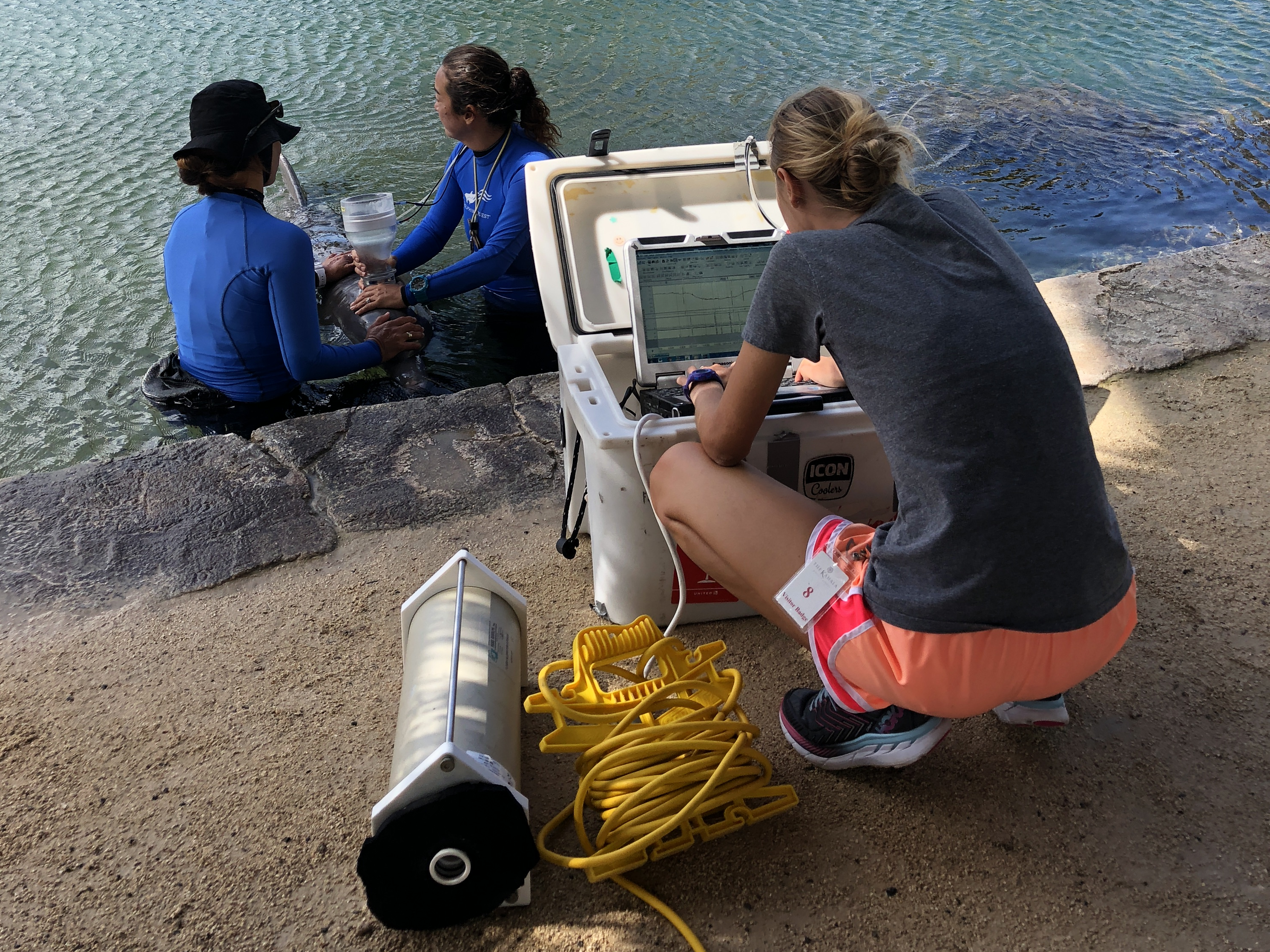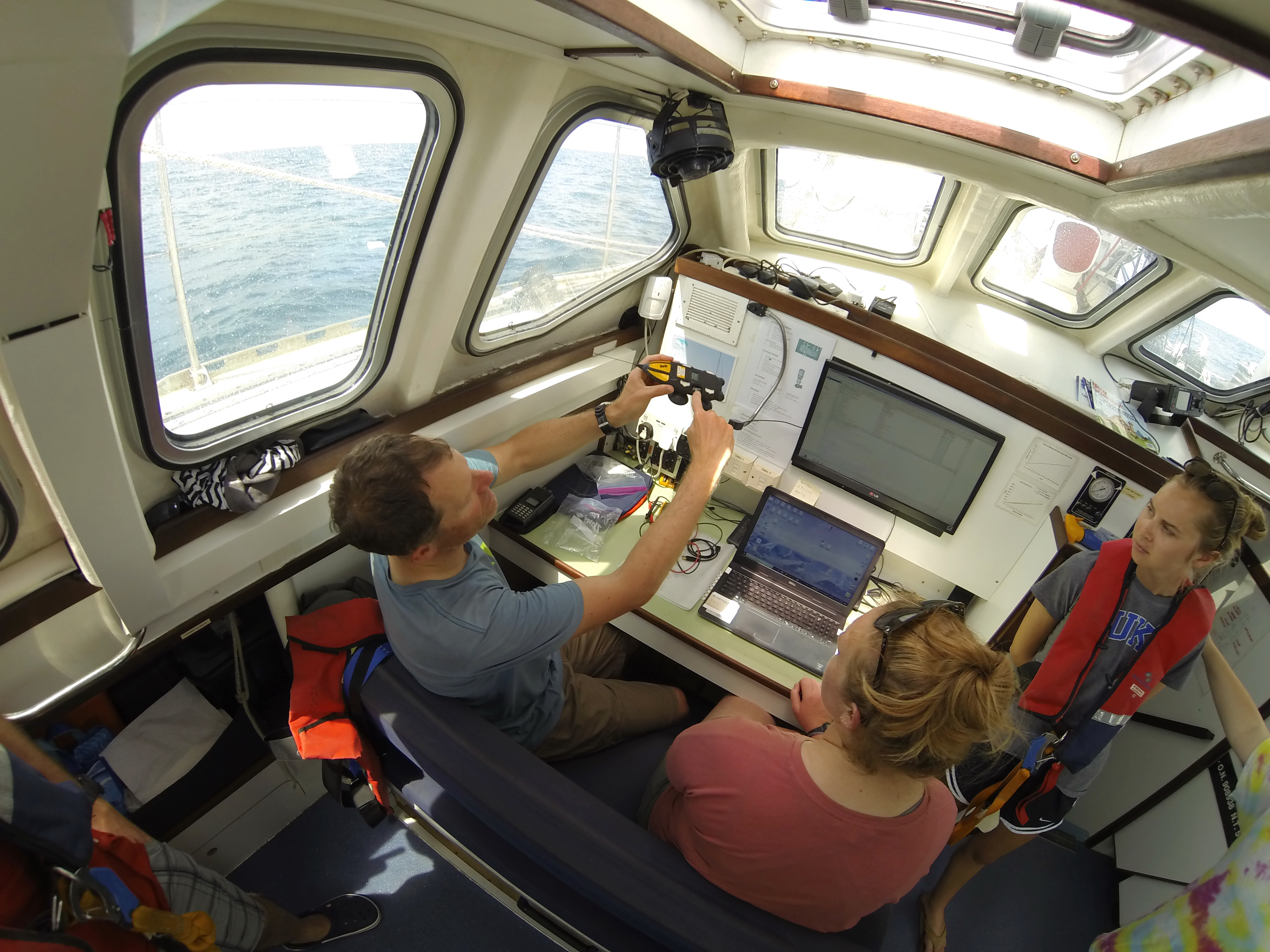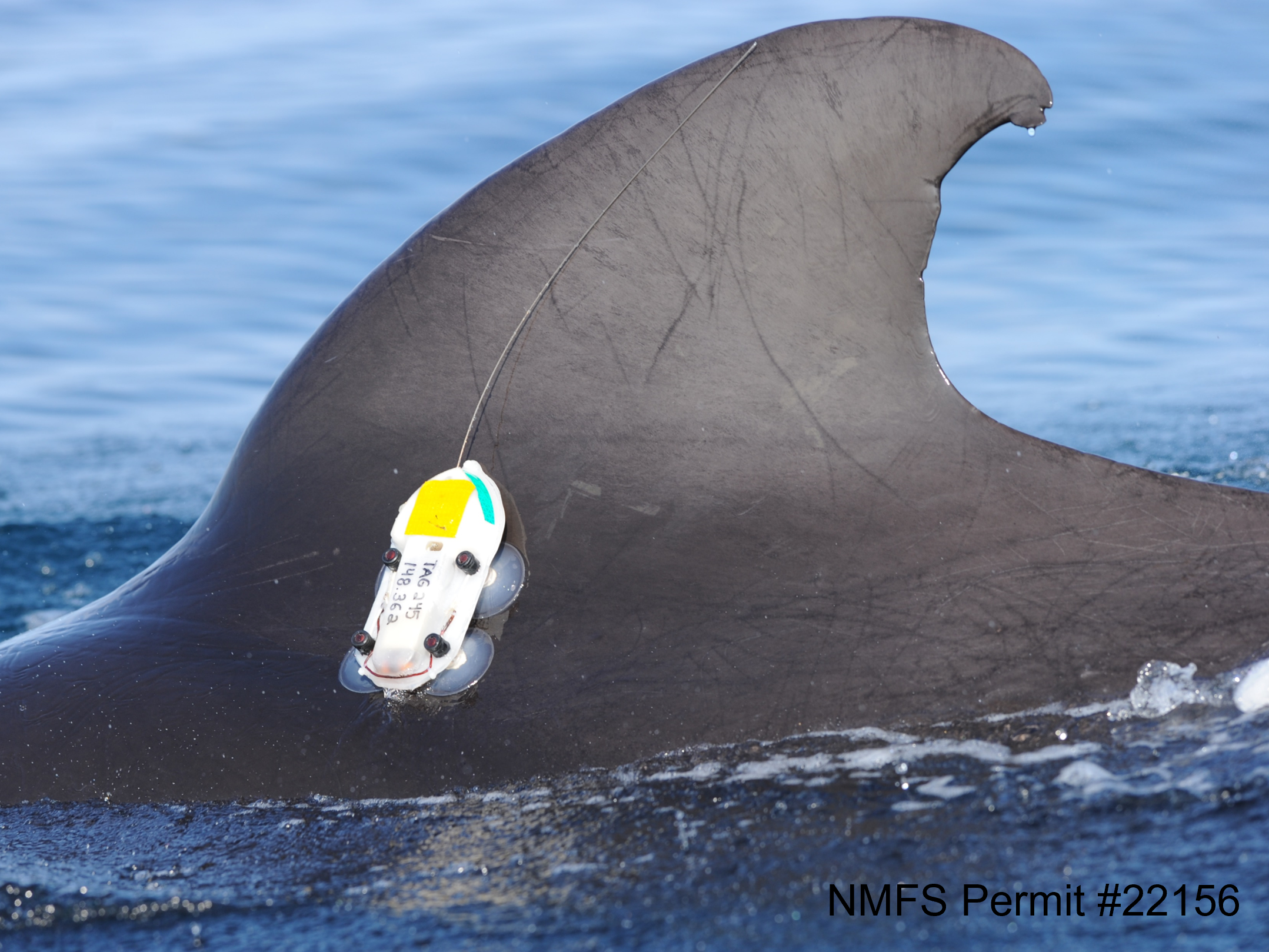Ashley M. Blawas
Comparative Physiologist. Postdoctoral Researcher, Stanford University

Hopkins Marine Station of Stanford University
120 Ocean View Blvd.
Pacific Grove, CA 93950
I am currently a Postdoctoral Researcher in the Goldbogen Lab at Stanford University. My research focuses on the physiological traits that underpin metabolic function in baleen whales using engineering and molecular biology tools. I work across multiple scales of biological organization, from organism to organ system, tissue, and cell, to understand how animals sustain physiological function at the limits of organismal performance. I work on answering questions about drivers of oxygen/nutrient transport, limits to metabolic function in oxygen/nutrient-limited behavioral states and environments, and how adaptations to these challenges differ across organisms during acute versus chronic oxygen/nutrient stress.
I completed by Ph.D. in Marine Science in the Nowacek Lab at Duke University and obtained my B.S.E in Biomedical Engineering from Duke University’s Pratt School of Engineering.
In addition to research, I have focused on developing my teaching abilities as part of my training. In Spring 2024, I co-taught Bio-logging and Bio-telemetry at Stanford. As a graduate student, I pursued a Certificate in College Teaching during which I took courses in pedagogy, course design, and college teaching. I have experience instructing course, creating and giving lectures, and leading lab exercises on topics within the field of physiology to a diverse array of students from specialized courses like Comparative Physiology of Marine Animals to general courses like Marine Megafauna. I have also enhanced my science communication skills and community engagment through outreach programs like Growing Equity in Science and Technology and Skype a Scientist.



News
| Aug 25, 2025 | I was recently featured on the Science Podcast discussing our new publication on rorqual foraging energetics and metabolic rates (Science Podcast) |
|---|---|
| Aug 07, 2025 | New paper out in Science Advances answers question of field metaoblic scaling in the planet’s largest animals (baleen whales)! |
| Oct 18, 2024 | New paper out in Conservation Biology highlights importance of low-impact journals for conservation (Duke Nicholas School) |
| Oct 01, 2024 | Our team was awarded a Bio-X Seed Grant for collaborative work with Stanford Med to study the cardiovascular function of baleen whales (Stanford Bio-X) |
| Sep 12, 2024 | The Goldbogen Lab meets the Naval Postgraduates School Climate Security Fellows and faculty (NPS) |
| Mar 24, 2023 | I was featured on the Marine Mammal Science podcast discussing cardiovascular and respiratory adapations for diving in cetaceans (Marine Mammal Science Podcast) |
| Sep 30, 2022 | I am featured giving a comment on a new Science article describing unique vascular features that protect cetaceans brains from pulsatile flow during diving (Science News) |
| Mar 02, 2022 | A recent feature on our paper on measuring a dolphin’s cost of locomotion using suction-cup tags (eco) |
| Jan 10, 2022 | I received a TriCEM Graduate Student Award to support continued molecular organoid work (Duke Graduate School) |
| Jun 01, 2020 | I was featured as an alumni of the Bass Connections History and Future of Ocean Energy Team (Duke Bass Connections) |
| Jul 15, 2019 | The marine mammal labs host a DTAG station at the Duke Marine Lab Open House! (Coastal Review) |
| Mar 29, 2019 | The Girls Exploring Science and Technology (GEST) event at Duke Marine Lab hosted 200 students for activities in marine science (Coastal Review) |
| Nov 15, 2017 | My team received a Follow-On Research Award to continue our Bass Connection work on renewable ocean energy harvesting (Duke Bass Connections) |